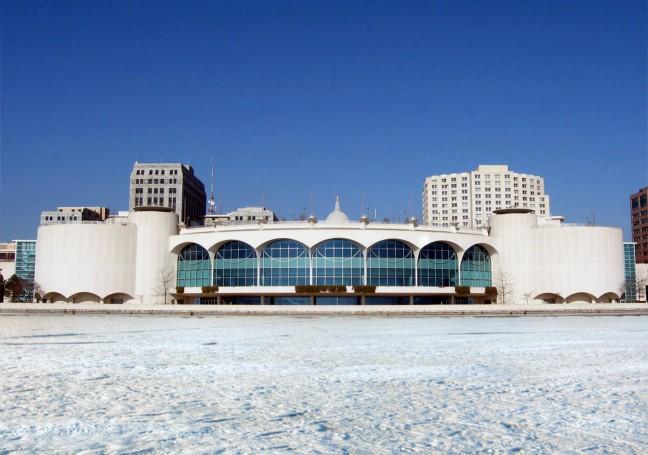Lake Monona’s 1.7-mile waterfront is set to undergo a complete redesign at the top of next year. Three teams have met over the past several months in a competition over what proposal receive the go-ahead for the lake’s final project.
The lake’s waterfront serves many functions within the Madison community. From an environmental standpoint, the Isthmus’ waterways house a diverse array of habitats, species and ecological management systems.
Historically, Monona is within the Ho-Chunk land that the nation has occupied and used for centuries, and remains an important piece of Native culture. The waterfront’s beauty also brings tourism and local recreation to the county’s economy.
Chancellor Jennifer Mnookin shares opinions, approaches to key student issues
Monona’s redesign cannot accommodate every stakeholder and consideration. In some instances, interests will inevitably clash over the lake’s best utilization. While economic and recreational opportunities might work hand in hand, these could present environmental challenges for the community.
Tourism can cause the same risk of pollution as any other industry. Tourists can increase litter on any developing trails or beaches, and air pollution has the potential to rise with any facilities built to support the industry’s proceedings.
Similarly, water basins are useful to factories to cool their plants. Some water-intensive industries that could want a foothold on Lake Monona’s resources include agriculture, apparel and textile manufacturing, oil or gas extraction and livestock management.
Given the number of potential uses for Lake Monona, the teams in charge of redesigning the waterfront will inevitably need to prioritize what should be done. Despite the economic and tourist potential Lake Monona presents, the top priority of the committee should be the cultural heritage and water quality of the waterfront.
Lawsuits challenging student debt relief program harm potential beneficiaries
The Ho-Chunk Nation contains the waterways and basins in and around the Isthmus area. Not only does this project have an obligation to include the voices of Ho-Chunk people in their planning due to their claims to the land and the lake, but there is also a distinct opportunity to use the waterfront to expand local knowledge of the cultural heritage surrounding Lake Monona.
The environmental maintenance of the lake should also be top of mind for planners. In the summer of 2019, the lake’s beaches closed 48 times due to cyanobacteria blooms. The lake was also added to the impaired waters list last year due to PFOS contamination.
Phosphorus continues to be a concern for Madison’s lakes, as well. Monona’s aquatic habitat houses a variety of wildlife, with fish species ranging from bass and walleye to sturgeon and catfish. As it stands today, many of Dane Country’s native fish species are struggling with chemical contamination. The ecosystem is also battling invasive species like zebra mussels and mystery snails.
Lake Monona’s waterfront redesign is well-deserved and presents Madison with an opportunity to rethink the way we use our lakes. The temptation to lean into the potential economic profits of the land is certainly worth considering, but the top priorities of the team’s proposal should be on preserving the cultural heritage of the lake, including Indigenous voices in the design process and protecting the ecological and aquatic habitats of Monona.
Fiona Hatch ([email protected]) is a sophomore studying political science and international studies.




















